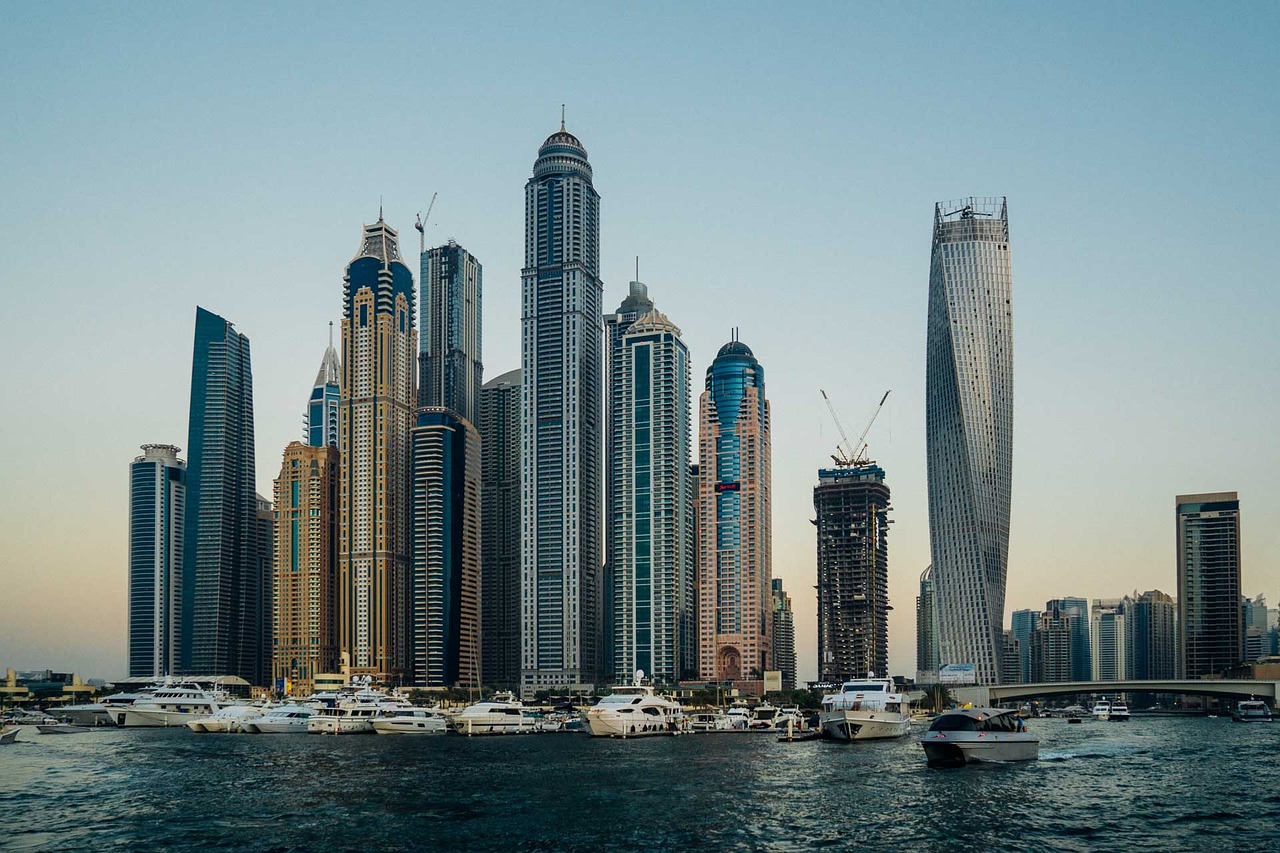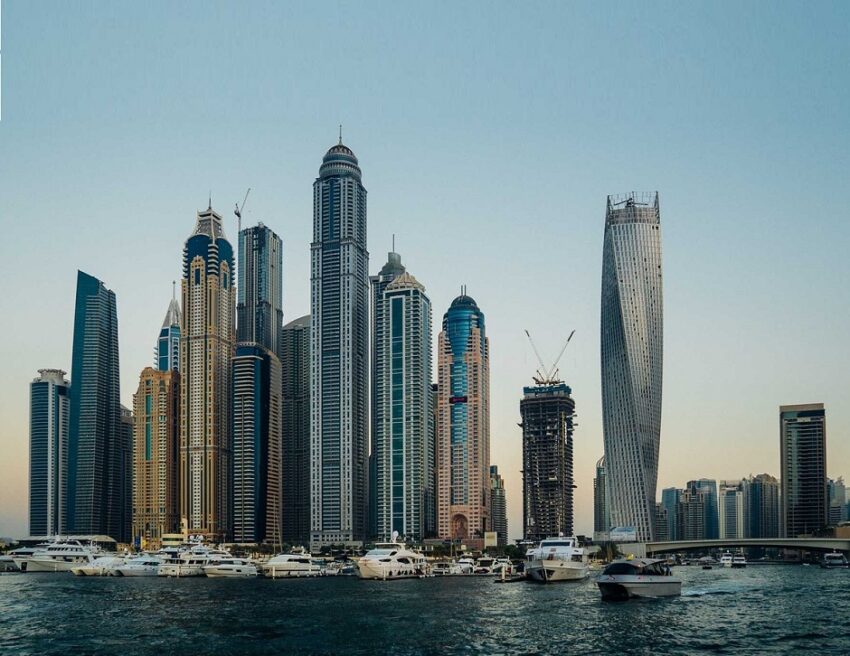Dubai Maritime Authority (DMA) has introduced a noteworthy measure, Administrative Decision No. 2 of 2023, focusing on the transparency of local sea container charges in Dubai. This directive, a product of extensive consultations under the DMA’s formal stakeholder partnership program, signifies a substantial stride in promoting transparency, accountability, and competitiveness within Dubai’s ocean freight shipping industry. Already in effect since the past few months, this decision is a result of a thorough analysis conducted by the DMA on the container shipping sector and local sea container charges. Its primary objective is to improve transparency in the maritime domain and streamline business operations in Dubai. Furthermore, as the city continues to shape itself as a leading maritime destination, this decision marks a significant step toward maintaining and elevating its status on the world stage in 2024.
Additionally, the Administrative Decision emphasizes five key changes designed to promote the incorporation of global best practices across Dubai’s maritime ecosystem. In today’s blog, we delve into the implications of these new directives on the container shipping industry in the UAE and its broader impact on a global scale.

Changes brought about by the DMA’s Administrative Decision No. 2 on the ocean freight shipping industry
The impact of Dubai Maritime Authority’s Administrative Decision No. 2 on the container shipping industry in Dubai is substantial, bringing about several key changes:
End to Freezing of Sea Container Charges
Administrative Decision No. 2 discontinues the practice of freezing sea container charges, a measure previously introduced by Directive No. 1 of 2023 on the same matter.
Mandatory Publication of Charges Details
Providers of local sea container services are now required to openly publish the details of charges submitted to the DMA on their corporate websites within 30 days. This step enhances transparency, providing customers with accessible information.
Amendment Requests through Dubai Trade Single-Window
The directive allows providers of ocean freight services to request amendments to their charges through the Dubai Trade single-window, following a defined process set by the Authority. This streamlines the process for service providers, promoting efficiency and accountability.
Introduction of New Billing Mechanism
Following an extensive analysis of charges submitted by service providers, the DMA has introduced a new mechanism. From now onward, service providers will now directly charge for their services, while the local Port Operator will issue separate invoices for their services, such as Terminal Handling Charges (THC) and Truck Loading and Unloading Charges (TLUC), directly to the relevant user. Moreover, payments will be collected through the Dubai Trade Platform, enhancing financial clarity and efficiency.
Digital Issuance of Delivery Orders
As part of the broader digitization efforts, all Delivery Orders will now be digitally issued through the Dubai Trade Digital Delivery Order platform. This move contributes to Dubai’s reputation as a digital city, streamlining processes and improving overall efficiency. Further details on the implementation of this system will be communicated in the future.
These changes collectively aim to enhance transparency, accountability, and efficiency within Dubai’s ocean freight shipping industry, aligning it with global best practices and reinforcing the city’s commitment to digital innovation.
Changes in Tariffs brought about by Administrative Decision No. 2
Administrative Decision No. 2 has ushered in changes to tariffs in Dubai’s maritime landscape, introducing a series of adjustments:
Terminal Handling Charge (THC) and Port Clearance Fees
The Terminal Handling Charge (THC) and other pertinent fees for port clearance will now be imposed when settling payments with the forwarding company through Dubai Trade Single Window for both Import and Export Declarations. This streamlined process enhances efficiency and transparency in financial transactions.
Export TLUC/Shifting Charges Payment Service
A new service, “Export TLUC/Shifting Charges Payment,” on Dubai Trade Single Window has been introduced to facilitate the collection of Truck Loading and Unloading Charges (TLUC) and Shifting charges. To ensure smooth processing, TLUC payments must precede the generation of e-Tokens/Gate bookings for the delivery of empty containers. If users decline container acceptance, the TLUC and Shifting Charges will still be invoiced to the agents.
Unclaimed Containers and Charges
In instances where containers go unclaimed and eventually move to public auction, are destroyed, or abandoned for any reason, all pertinent charges, including THC, will be billed directly to the respective Shipping Line/Agent after a three-month tenure in the port. This measure ensures accountability for unclaimed containers and associated costs.
Late Addition Charges for Full Container Exports
Late addition charges will persistently be assessed against shipping lines for full container exports, promoting adherence to specified timelines and optimizing operational efficiency.
Hazardous or OOG Cargo Charges
For containers containing Hazardous or Out of Gauge (OOG) cargo, the associated hazardous surcharge and fees for using special equipment will be invoiced to the relevant Shipping Line agents. This ensures that the costs associated with handling specialized cargo are accurately accounted for.
These tariff adjustments align with the broader goals of Administrative Decision No. 2, focusing on transparency, efficiency, and accountability within Dubai’s maritime sector.
Impact of the DMA’s new Administrative Decision No. 2
Administrative Decision No. 2 will have a profound impact on Dubai’s already prominent position in the global ocean freight industry landscape. As a city recognized among the world’s top five destinations for the maritime industry, Dubai has consistently demonstrated its significance on the international stage, surpassing key maritime hubs such as Rotterdam, Hamburg, Athens, New York, New Jersey, and Tokyo, according to the International Shipping Centre Development (ISCD) Index.
Moreover, the decision follows the Dubai Maritime Authority’s (DMA) expanded mandate earlier this year, reflecting a commitment to advancing the maritime sector. The DMA’s thorough consultation process involving the entire industry, coupled with a comprehensive analysis of the industry’s landscape and local sea container charges under Directive No. 1, has culminated in the introduction of Administrative Decision No. 2 of 2023 on the Transparency of Local Sea Container Charges in Dubai Directive.
This decision extends its impact beyond Dubai’s borders, affecting trans-shipment containers passing through Jebel Ali to other Arabian Gulf ports, with associated costs experiencing a notable increase. The move aligns with Dubai’s continuous efforts to solidify its status as a global trade hub.
Summing it up, Administrative Decision No. 2 will reinforce transparency, accountability, and competitiveness within Dubai’s maritime sector. By addressing the intricacies of local sea container charges and introducing measures to enhance operational clarity, the decision is could bolster Dubai’s overall competitiveness in the global trade arena.


